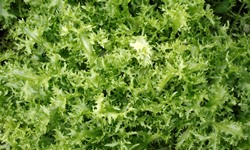 The outbreak of salmonella linked to pre-packaged
salad leaves is a wake-up call for greater public awareness about food safety,
according to a Charles Sturt University (CSU) expert in microbiology.
The outbreak of salmonella linked to pre-packaged
salad leaves is a wake-up call for greater public awareness about food safety,
according to a Charles Sturt University (CSU) expert in microbiology.
More than 100 people nation-wide have been affected in the recent outbreak and Senior Lecturer at CSU's School of Biomedical Sciences, Dr Thiru Vanniasinkam said it's not unusual for salad leaves to be the culprit.
"Outbreaks of diseases caused by contaminated food of non-animal origin have been increasingly reported in many developed countries in recent years," she said.
"Recent studies show that salmonella enterica is most frequently associated with contaminated vegetables salads, other pathogens reported include E. coli, which was associated with an outbreak in Germany a few years ago."
Enteric diseases are infections caused by viruses and bacteria that enter the body through the mouth or intestinal system, mainly from contaminated food or liquids.
Dr Vanniasinkam said the public needs to be aware that these pathogens can be transmitted via uncooked fruit and vegetables.
"Most people consider salmonella to be a pathogen associated with contaminated eggs and poultry products," she said.
"But contaminated salad leaves are particularly at risk of causing disease as any contaminating bacteria will not be killed prior to eating.
"If they are worried about a food product such as salad leaves that would usually be consumed raw, people could consider washing the product thoroughly before use and this would make it safer to consume."
Dr Vanniasinkam also highlights the need for improved quality control processes to ensure food safety.
"The source of contamination of the recent salmonella outbreak is still being investigated but there has clearly been a break in quality control somewhere within the production system," she said.
"Food safety is an important issue for food producers in all countries. Ongoing research is required to improve food safety standards."
Dr Vanniasinkam is supervising PhD research into Campylobacter in chicken meat, a pathogen which is the most common cause of gastroenteritis in Australia.
"An important aspect of the research is looking at approaches to make chicken meat free from Campylobacter contamination," said Dr Vanniasinkam.
"It is hoped that this research may help prevent colonisation of chickens with Campylobacter, thereby reducing cases of poultry acquired Campylobacter amongst people".





Social
Explore the world of social